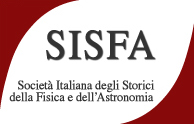Speaker
Description
First with an implicit reference, in his letter to Benedetto Castelli (December 21, 1613), and later with several explicit references, in his letter to Christina of Lorraine (spring-summer 1615), Galileo made his ultimate attempts to prevent the condemnation of Copernicus’s De revolutionibus, arguing for its compatibility with the Scriptures, as well as for the freedom and autonomy of science. He did so by appealing to substantial passages from Augustine, which he carefully chose and even more carefully employed.
That Galileo, himself not a theologian, managed to understand the problem and rapidly advance a solution – one which is currently endorsed by the Church itself – is nothing short of amazing, and cannot but raise questions about the path he might have followed.
A careful perusal of Augustine’s texts and the exchanges Galileo had with friends, disciples, and colleagues, suggests a different reading from the received one. Galileo was not driven, in a short time, «to instrumentally wear clothes that were not his, to become a makeshift theologian». Quite the contrary, his words were far from improvised, thrown together in haste, rhapsodically appealing to quotes that were made available to him by friends and acquaintances who knew the subject better than he did. Rather, they were the outcome of autonomous deliberations, which only later did he develop in dialogue with others. We may argue this, based on a famous expression of Galileo’s, a loan from a Latin expression from Augustine’s De Genesi ad litteram, to which I call attention in the present paper.

